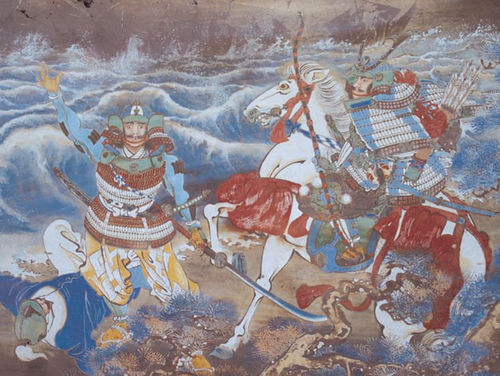Year 1274: Key Historical Events
The year 1274 (MCCLXXIV) was a common year starting on Monday in the Julian calendar.
Events
By Place
Europe
May 7 – The Second Council of Lyon is convened by Pope Gregory X after assurances from Byzantine Emperor Michael VIII Palaiologos that the Orthodox Church is open to reunification with Rome. The council addresses key issues, including the Orthodox acceptance of papal primacy and acceptance of the Nicene Creed with the Filioque clause. Gregory X approves a tithe to support the liberation of the Holy Land from Muslim control, although the resolution of the schism ultimately proves unsuccessful. The council also results in the suppression of all but four mendicant orders of friars and a formal definition of Catholic teaching on Purgatory.
November – During the Imperial Diet at Nuremberg, a resolution is passed to restore all crown estates seized since the death of Emperor Frederick II to King Rudolf I. All European rulers comply, except for Ottokar II, the king of Bohemia, who has significantly benefited from these lands.
England
August 2 – Edward I of England returns from the Holy Land and is crowned king on August 19 at Westminster Abbey, two years after the death of his father, King Henry III.
September 21 – Walter de Merton, English chancellor and regent, retires, paving the way for Robert Burnell to become a vital ally of the Edwardian regime.
The first main survey of the Hundred Rolls, an English census acting as a follow-up to the Domesday Book, begins, lasting until 1275.
Africa
Abu Yusuf Yaqub ibn Abd al-Haqq, ruler of the Marinid, peacefully enters Ceuta, ending its independence of over 40 years.
Asia
November 4–19 – The Battle of Bun’ei occurs as forces from the Mongol-led Yuan dynasty invade Japan. After initially conquering the Japanese settlements on Tsushima and Iki islands, Kublai Khan’s fleet attempts a landing at Hakata Bay. Japanese warriors, led by Hōjō Tokimune, resist valiantly using whistling arrows to intimidate their foes. Despite some initial success, the Mongols eventually suffer heavy losses and are repelled, notoriously aided by a typhoon, called kamikaze, which destroys many of their ships.
During this time, Nichiren, a Japanese priest and philosopher, enters exile on Mount Minobu, where he leads a significant movement through his extensive correspondence.
By Topic
Literature
Bonvesin da la Riva, an Italian poet, composes the didactic-allegorical poem Liber di Tre Scricciur (“Book of the Three Scriptures”), one of the earliest significant literary works in Italy. This text deals with themes of Hell, the Passion of Jesus, and Paradise and sets the stage for Dante Alighieri‘s Divine Comedy.
May 1 – In Florence, the young Dante, aged 9, sees the 8-year-old Beatrice, who later inspires much of his work, including the guides in Divina Commedia.
Religion
Pope Gregory X reforms the papal election process by instituting conclaves (meetings of the College of Cardinals) to ensure timely elections, which previously took over three years. He secures the region of Romagna from Rudolf I, enhancing the power of the Papal States to become the second-largest power block in Italy, following the Kingdom of Sicily.
Births
- February 9 – Louis of Toulouse, French archbishop (d. 1297)
- April 1 – Robert Clifford, English nobleman and knight (d. 1314)
- July 11 – Robert the Bruce, king of Scotland (d. 1329)
- July 25 – John Beauchamp, English nobleman (d. 1336)
- October 4 – Rudolf I, German nobleman (d. 1319)
- October 5 – Al-Dhahabi, Syrian scholar and encyclopedist (d. 1348)
- November 24 – Catherine I, Latin empress (d. 1307)
- Eric VI, king of Denmark (d. 1319)
Deaths
- February 18 – Jakob Erlandsen, Danish cleric and archbishop
- February 19 – Lal Shahbaz Qalandar, Afghan Sufi poet (b. 1177)
- February 21 – Ibn Malik, Moorish grammarian and writer (b. 1205)
- March 7 – Thomas Aquinas, Italian friar and theologian (b. 1225)
- April 26 – Heinrich von Wartenberg, Swiss nobleman and abbot
- June 3 – Lawrence of St. Martin, English archdeacon and bishop
- June 26 – Nasir al-Din al-Tusi, Persian scientist and writer (b. 1201)
- July 15 – Bonaventure, Italian theologian and philosopher (b. 1221)
- July 22 – Henry I, king of Navarre (b. 1235)
- July 23 – Wonjong of Goryeo, Korean prince and ruler (b. 1219)
- August 4 – Robert Stitchill, English prior and bishop
- August 12 – Duzong, Chinese emperor (b. 1240)
- August 15 – Robert de Sorbon, French chaplain and theologian
- September 2 – Munetaka, Japanese prince and shogun (b. 1242)
- September 26–29 – Henry I Kőszegi, Hungarian nobleman (b. 1210)
- October 14 – Henry, English prince (b. 1268)
- November 4 – Sō Sukekuni, Japanese governor (b. 1207)
- November 8 – Fujiwara no Akiuji, Japanese nobleman (b. 1207)
- November 10 – Aveline de Forz, English noblewoman (b. 1259)
- November 28 – Philip of Castile, son of Ferdinand III (b. 1231)
In Fiction
The video game Ghost of Tsushima is set in the year 1274.

